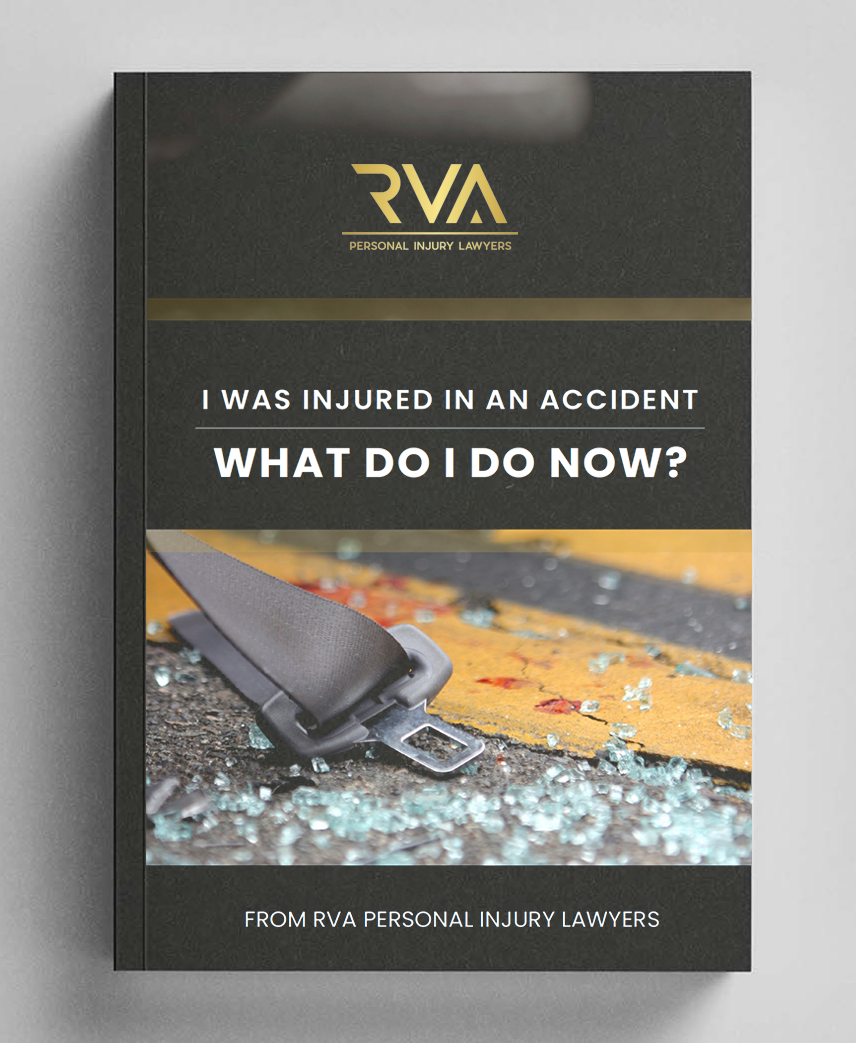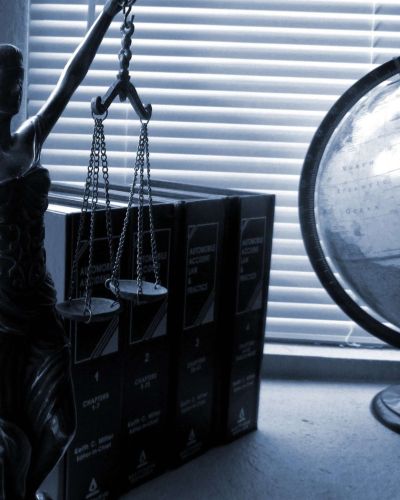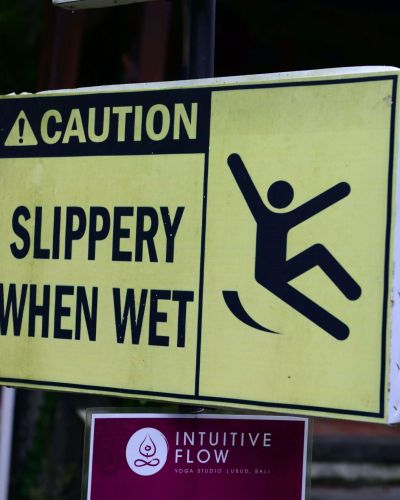Articles, Personal Injury
Insurance Company Tactics: Delay, Deny, Diminish Your Claim

If you’ve ever had to file a personal injury claim, you know how frustrating dealing with an insurance company can be. Many insurance companies are structured in a way to delay, deny, and diminish your claim. Lawyers who specialize in personal injury are well aware of their tactics.
If you have suffered injuries because of someone else’s negligence, Sharif Gray at Broughton Injury Law can help. We have won millions of dollars in verdicts and settlements. Call Sharif at (804) 915-1611 or contact him online to schedule a free consultation. We will get justice for you.
Devaluation is a calculated effort to diminish the value of your claim. It is subtle and systematic. With technology like AI-driven programs like Colossus, devaluation has become the new normal. These tools allow insurers to seem objective while undervaluing claims, reducing compensation for the injured, under the guise of data analysis.
This article explores how insurance companies devalue personal injury claims—and how effective attorneys in Virginia fight back to get justice for their clients.
Table of Contents
ToggleUnderstanding the Personal Injury Claim Process
What is a Personal Injury Claim?
A personal injury claim is a legal action taken by an individual who has been harmed due to another person’s negligence or intentional misconduct. The victim seeks compensation for the injuries inflicted to reimburse them for what was taken from their health and quality of life.
When you file a personal injury claim, you are essentially seeking financial compensation for the harm you have suffered. This can include pain and suffering, medical bills, lost wages, property damage, and emotional distress. The goal is to make you whole again. However, navigating the personal injury claim process can be complex and overwhelming, especially when dealing with insurance companies that use tactics to minimize payouts.
A personal injury lawyer can guide you through this process, ensuring that you understand your rights and the steps involved. They can help you gather the necessary evidence, negotiate with the insurance company, and, if needed, take your case to court to secure the compensation you deserve.
Determining Liability and Gathering Evidence
Negligence and Fault
Negligence refers to the failure to act with reasonable care or a breach of duty. A classic example of negligence is a distracted driver who causes a car accident. Just because you were injured doesn’t automatically imply someone else was negligent. To establish negligence, you must prove that the defendant had a duty of care, breached that duty, and caused your injuries.
In personal injury cases, proving negligence is crucial. For instance, if you were involved in a car accident, you need to show that the other driver was distracted, perhaps by texting or talking on the phone, and that this distraction led to the accident and your injuries. Your personal injury lawyer will work to establish this connection, ensuring that the responsible party is held accountable.
Gathering Evidence
Gathering evidence is a critical step in filing a personal injury claim. Evidence can include photos, witness statements, and records of expenses related to the injury. The strength of the evidence can make or break a personal injury claim. Your personal injury lawyer will work with you to collect and preserve evidence, including:
- Medical records and bills
- Police reports and accident scene photos
- Witness statements and contact information
- Records of lost wages and property damage
- Photos and videos of the accident scene and your injuries
By gathering and preserving evidence, you can build a strong case and increase your chances of receiving fair compensation for your injuries. For example, if you were injured in a car accident, having detailed photos of the accident scene, your injuries, and the damage to your vehicle can be invaluable. Similarly, medical records and bills provide concrete proof of the extent of your injuries and the associated costs.
Insurance Company Tactics
Insurance companies use various ways to minimize payouts or deny claims altogether. Some of these tactics include:
- Delaying the process: By stalling, insurers hope to wear down the claimant, making them more likely to accept a lower settlement out of frustration or financial necessity.
- Making lowball offers: Insurers start with a low offer, hoping the claimant will take it without further negotiation.
- Requesting too much documentation: By asking for too much paperwork, insurers aim to frustrate and confuse the claimant, maybe causing them to give up on the claim.
- Using legalese: Legal mumbo-jumbo and complicated terms can confuse the claimant, making it harder for them to understand their rights and the value of their claim.
- Blame the claimant: Insurers may try to shift the blame onto the claimant, saying they were partially or fully responsible for the accident or their injuries.
1. Minimize the Injuries
Insurance adjusters will downplay the injuries in a personal injury lawsuit. They’ll say:
- The injuries are preexisting or unrelated to the accident.
- The treatment is unnecessary, excessive or unwarranted.
- The plaintiff is exaggerating pain and suffering.
Understanding the various types of personal injury claims is crucial, as it helps determine the appropriate legal response and potential compensation. Common categories include car accidents, slip and falls, medical malpractice, and workplace injuries.
Example:
Emily, a Charlottesville teacher, was rear-ended by a distracted driver and suffered a herniated disc. Despite medical records clearly showing the injury was caused by the crash, the insurance adjuster said her pain was due to a preexisting condition and offered a settlement that didn’t cover her medical bills or suffering.
How Virginia Attorneys Respond:
Attorneys work with medical experts to establish the severity and cause of the injuries by obtaining relevant medical records. They gather detailed medical records and expert testimony to discredit claims of exaggeration or preexisting conditions. When insurers produce biased independent medical examiners, skilled attorneys challenge their credibility through cross-examination and documentation.
2. Question Liability
Insurers will try to shift the blame to reduce claim payouts, especially in car accidents. This includes:
- Suggesting the plaintiff was partially at fault.
- Blaming a third party for the accident.
- Saying there’s not enough evidence of liability.
Example:
In a Richmond case where a pedestrian was hit in a crosswalk, the insurer said the victim crossed against the light, trying to use Virginia’s contributory negligence laws to bar recovery since the plaintiff was 1% at fault.
Attorneys gather evidence such as police reports, photos, witness statements and video footage to prove liability. In complex cases, they work with accident reconstruction experts to make sure fault is clear so insurers can’t use uncertainty to their advantage.
3. Lowball Economic Damages
Economic damages—medical bills, lost wages and future expenses—are often underestimated by insurers, which affects the financial compensation victims get. Adjusters will say:
- Medical costs are inflated or unnecessary.
- Lost wages are exaggerated or undocumented.
- Future expenses are speculative.
Example:
John, a Roanoke delivery driver, suffered a back injury that required surgery and physical therapy. His doctor projected additional surgeries but the insurer said those were uncertain and offered a settlement that was way below what he needed.
How Attorneys Help:
Virginia personal injury attorneys work with medical professionals and economists to calculate current and future damages, aiming to achieve a successful personal injury claim. They present all the evidence so juries or negotiators understand the full financial impact of the injury.
4. Minimize Pain and Suffering
Pain and suffering damages are highly subjective, so they’re a prime target for devaluation in personal injury cases. Insurers will say:
- Pain is exaggerated.
- Injuries haven’t affected quality of life.
- Non-economic damages should be minimal.
Example:
Samantha, a Virginia Beach nurse, was hit by a drunk driver and suffered chronic pain and limited mobility. Despite multiple surgeries, the insurer said her pain didn’t warrant big compensation and lowballed her settlement.
How Attorneys Fight Back:
Good attorneys show the real-life impact of injuries through medical records, expert testimony, and compelling stories to enhance the chances of achieving a successful personal injury claim. By focusing on how injuries affect daily life, mobility, and mental well-being, they counter attempts to minimize non-economic damages.
5. Delay
Delay tactics are designed to frustrate and financially burden plaintiffs, making it hard to pursue an insurance claim. They include:
- Requesting unnecessary documentation.
- Rescheduling hearings or depositions.
- Dragging out negotiations to wear down plaintiffs emotionally and financially.
Example:
Mark, a Fairfax small business owner, had medical bills piling up after a car accident. The insurer stalled his case for over a year using delay tactics to get him to settle for less.
How Virginia Attorneys Counter Delay:
Good attorneys hold insurers accountable by filing motions to compel and setting firm trial dates. They keep the case moving and the client informed so delays don’t kill the case.
Devaluation in Virginia Personal Injury Cases
Devaluation is a silent killer that can cost victims thousands—or hundreds of thousands—of dollars if they don’t have the right attorney.
“Devaluation saves insurers billions by undermining victims’ claims. We fight these tactics hard to get full justice and compensation for our clients,” says Sharif Gray, Virginia personal injury attorney.
Get a Personal Injury Lawyer
If you’ve been injured by someone else’s negligence or wrongdoing, getting a personal injury lawyer is important. A personal injury lawyer can:
- Walk you through the personal injury claim process: The legal system can be overwhelming but an experienced attorney can explain each step and what to expect.
- Get you the right medical records and evidence: Proper documentation is key to a strong case and a lawyer knows what evidence is needed and how to get it.
- Negotiate with the insurance company: Insurers are more likely to offer fair compensation when dealing with a good negotiator who knows the value of your claim.
- Take your case to court if necessary: If negotiations fail, a lawyer can take your personal injury lawsuit to court and fight for you to get the compensation you’re owed.
- Offer emotional support and direction: A personal injury can be overwhelming but having an attorney dedicated to your case can give you peace of mind and confidence.

“We Get Justice For Injured People, and We Love What We Do”
Sharif Gray works as a trial lawyer at Broughton Injury Law. Sharif has proven that he can and will get results in court, and the insurance companies know that. If you have suffered injuries because of someone else’s negligence, we can help.
Sharif is committed to trying cases well. Because of that, he does not handle hundreds of cases at a time. He is selective in the cases he takes so he can get justice for the people he represents. In every case, he has three goals:
- Hold the responsible corporation or individual fully accountable.
- Make the community safer, so others are not also harmed.
- Compensation that recognizes the full and fair value of what was taken from your health and quality of life.
Sharif loves what he does, and he is proud of the positive impact he has had and will continue to have on the people he represents and the community he lives in.
If Sharif can be of help to you, please do not hesitate to call him at (804) 915-1611 or contact him online to schedule a free consultation. We will get justice for you.
$10,000,000
Defendant, while racing on a residential road, crashed into an oncoming driver causing catastrophic injuries.
$9,000,000
Defendant failed to properly secure a display at its store which led to it falling on a child causing life altering injuries.
$1,500,000
Defendant failed to keep the entrance of its store safe for the public causing significant injuries.
















